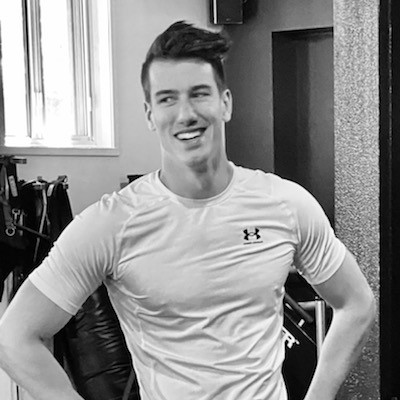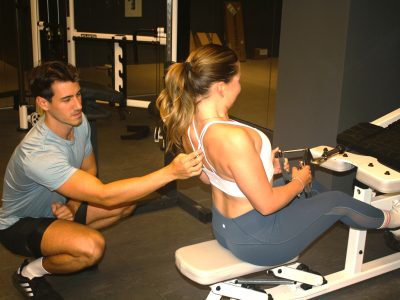Entraîneur privé à domicile
Entraînement privé à la maison avec un professionnel!
L’entraînement privé est une solution efficace pour les personnes avec un horaire très occupé qui cherchent à faire de l’activité physique. Commencez votre parcours de remise en forme ou faites le passer au prochain niveau avec un entraîneur privé à domicile!
Consultation gratuite avec un coach privé à domicile
Découvrez nos solutions d’entraînement à la maison près de chez vous!

Qu'est ce qu'un entraîneur privé à domicile?
Entraînement privé à la maison avec des professionnels de la mise en forme
Un entraîneur privé à domicile est un professionnel du fitness qui se déplace au domicile de ses clients pour leur proposer des séances d’entraînement personnalisées. Ce service inclut souvent des programmes adaptés aux objectifs du client, tels que la perte de poids, le renforcement musculaire, ou l’amélioration de la condition physique générale.
Êtes-vous prêt à vous mettre en forme dans le confort de votre foyer?
Les avantages de s’entraîner avec un coach privé à domicile
Votre coach devient votre partenaire et motivateur! Il ou elle vous apportera le soutien nécessaire pour que vos objectifs personnels et vos objectifs de mise en condition physique soient atteints, peu importe les conditions extérieures. Grâce à leur expertise, ces professionnels vous aideront à maintenir votre remise en forme sur le long terme, améliorant progressivement votre composition corporelle et votre fitness grâce à un programme d’entraînement bien pensé.

Programme d'entraînement sur mesure par un expert de la mise en forme
Travailler avec un entraîneur personnel à domicile, c’est bénéficier d’un programme d’entraînement adapté à vos besoins. Celui-ci prend en compte votre condition physique actuelle, vos objectifs de remise en forme, ainsi que votre niveau technique. Un coach compétent conçoit un plan spécifique tenant compte de vos besoins: préparation sportive, perte de poids, amélioration de la technique, gestion de douleurs chroniques et bien d‘autres. Grâce à leurs connaissances approfondies du corps humain, ces coachs professionnels vous aident à atteindre une meilleure forme et à optimiser votre programme de conditionnement physique.
Sauvez du temps avec un entraînement directement à votre maison
Avec un entraîneur personnel à domicile, inutile de vous déplacer jusqu’à une salle de sport. Vous pouvez profiter d’un programme personnalisé qui s’adapte à vos contraintes et à votre niveau de forme, avec des heures flexibles. Au fil des semaines, votre coach privé à la maison suivra votre progression, réévaluera vos objectifs de mise en forme, et vous guidera avec une approche humaine axée sur la communication, la motivation et la responsabilisation. Un coach à la maison est un soutien précieux, vous permettant de vous concentrer sur votre programme d’exercices en toute sérénité.


Plus qu'un entraîneur personnel, un motivateur privé!
Maintenir un programme de conditionnement n’est pas toujours simple. Entre les contraintes du quotidien, la fatigue et le manque de motivation, il peut être difficile de rester régulier. C’est là qu’un entraîneur personnel, un entraîneur privé à la maison ou un coach privé à domicile fait toute la différence! Ces coachs sportifs sont formés pour vous inspirer, vous encourager et vous aider à surmonter les obstacles. Ils comprennent l’importance d’une approche basée sur la psychologie du corps humain, la composition corporelle, la forme générale, et la gestion des douleurs afin que vous puissiez conserver une motivation durable.
Restez motivé lors de chaque séance avec un entraîneur privé à domicile!
Comment choisir un coach privé à la maison?
En matière d’entraîneur personnel à domicile, il n’existe pas d’approche unique. Lors de votre choix, tenez compte de leur domaine d’expertise dans le conditionnement physique, de leur expérience pratique et de leur prix.
Les entraîneurs personnels qualifiés comprennent les principes fondamentaux de la mise en forme, du corps humain et des différentes techniques d’entraînement afin d’optimiser votre programme de conditionnement et vos exercices.
Voici quelques éléments à considérer lorsque vous cherchez un entraîneur privé à domicile:

Une expertise poussée des muscles, du corps et de la santé!
Les coachs professionnels et coachs sportifs disposent souvent d’une formation solide en sciences du sport, ce qui leur permet d’élaborer un programme personnalisé. Ils évaluent votre condition physique actuelle, votre composition corporelle, vos mouvements, vos antécédents de santé (blessures, douleur chronique, asthme, etc.) et vos objectifs personnels. Leur expertise leur permet de mieux adapter leurs services et approche, ajustant le programme d’entraînement au fil des semaines.
Des années d'expérience en mise en forme à domicile
L’expérience d’un entraîneur personnel à domicile ou d’un coach privé à domicile est essentielle pour déterminer la pertinence des exercices, en tenant compte des contraintes d’espace, d’équipement et de votre niveau de forme. Ces professionnels sauront ajuster le programme et les mouvements en fonction de votre condition, vous aidant à progresser à un rythme soutenu.
Une approche amicale, empathique et agréable à l’entraînement!
Un coach compétent et empathique comprend la difficulté que représente la remise en forme. Il saura établir une approche humaine, encourageante et motivante, afin que vous ne vous sentiez jamais seul(e) dans votre démarche. Vos objectifs personnels et votre confort sont au cœur de leur mission.
Apprenez en plus sur comment choisir le bon entraîneur privé à domicile!
Commencez à travailler avec un entraîneur privé à domicile aujourd’hui!
Entraineur privé à domicile
Nos options d’entraînement personnel à domicile
Pour entamer une remise en forme de qualité, il est essentiel d’identifier le type d’entraîneur personnel à domicile adapté à vos besoins, votre forme et votre condition. Nous proposons deux formules de services:
Entraînement en personne par un coach certifié
Selon vos disponibilités, un entraîneur personnel à la maison, certifié et spécialisé en mise en forme, conditionnement physique et technique, se déplacera chez vous. Ces coachs professionnels ajustent leur programme de conditionnement en fonction de vos objectifs: remise en forme générale, perte de poids, renforcement musculaire ou amélioration de votre programme d’exercices. Ils tiennent également compte de toute douleur chronique afin d’assurer une progression durable vers une meilleure forme.
Entraînement virtuel à domicile
Vous pouvez également choisir un coach personnel virtuel qui vous accompagne en ligne (par Skype ou Zoom). Ces professionnels offrent un excellent rapport qualité-prix et proposent un programme d’entraînement personnalisé pour améliorer votre condition physique, votre composition corporelle, votre forme générale et votre niveau de forme, en ajustant le programme au besoin. En 4 à 6 semaines, vous pourriez déjà constater des progrès significatifs dans votre remise en forme.
Entraîneur domicile
En savoir plus sur l'entraînement à domicile
Lorsqu'il s'agit d'embaucher un entraîneur personnel, le coût peut être un facteur important. Beaucoup de gens sont intéressés par la commodité d'un entraîneur privé à domicile, mais ils ne savent peut-être pas combien cela leur coûtera.
Le coût d'un entraîneur personnel à domicile varie en fonction de plusieurs facteurs:
- Le type de sessions de formation que vous souhaitez et la fréquence à laquelle vous en aurez besoin affectent le prix.
- Le niveau d'expérience de l'entraîneur privé à domicile et les services supplémentaires.
- L'emplacement de votre maison est également important, car certaines zones sont plus chères..
Le type d'équipement requis pour un entraînement privé à domicile varie selon vos objectifs de condition physique, votre niveau de forme et votre programme d'exercices. Souvent, peu d’accessoires suffisent: tapis, bandes de résistance, haltères légers. Un entraîneur privé à domicile ou un coach privé à domicile adaptera son approche et son programme de conditionnement en fonction de votre espace disponible, ajustant le programme au besoin.
Des coachs professionnels, qu’ils soient kinésiologues ou entraîneurs personnels, conçoivent des parcours de remise en forme tenant compte de votre espace. Ne vous inquiétez pas, le matériel peut rester minimal!



